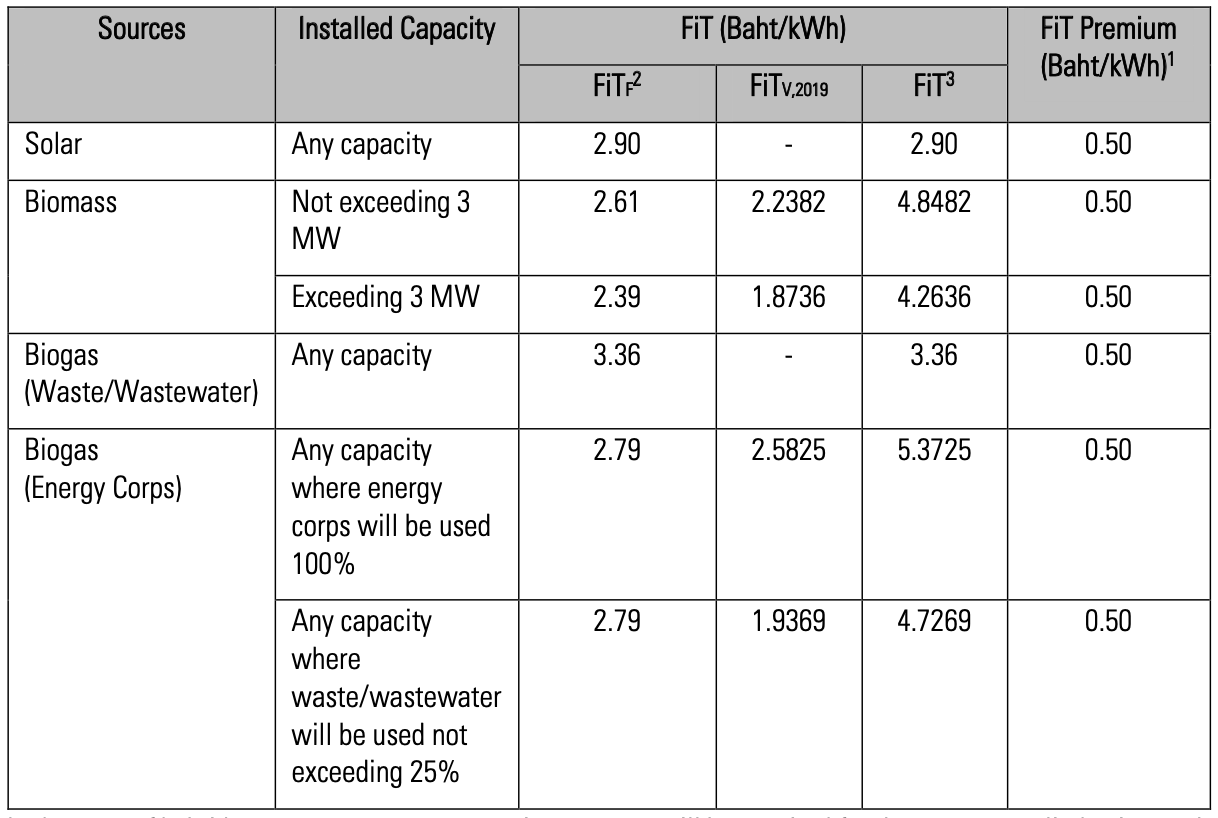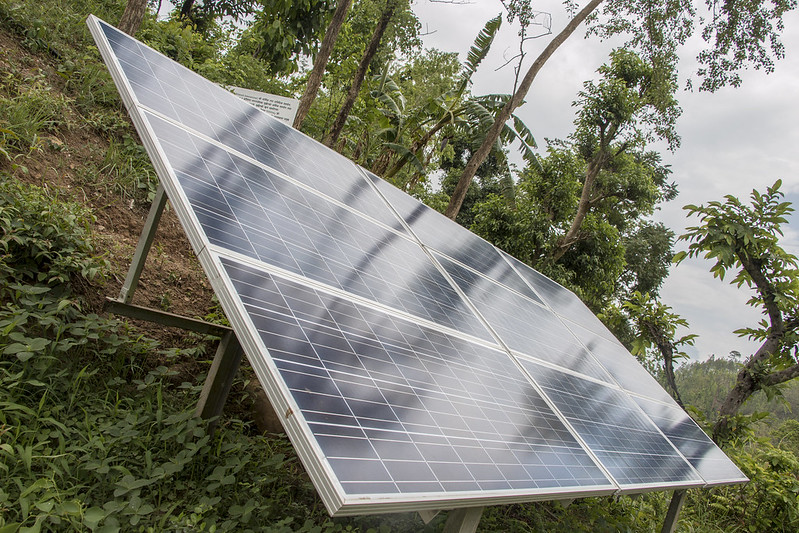



 Chandler MHM Limited
Chandler MHM Limited36th Floor, Sathorn Square Office Tower
98 North Sathorn Road Silom, Bangrak, Bangkok 10500
Thailand
www.chandlermhm.com
Following the National Energy Policy Committee’s in-principle approval of the procurement of power from community-based power projects on 16 December 2019, the Energy Regulatory Commission issued a Notification. The notification titled Procurement of Power from Very Small Power Producers with respect to Community-Based Power Projects (the “Notification”), came into force on 11 April 2020. These community- based power projects (the “Projects”) will help generate and distribute income to local communities and promote their participation in local power projects.
This article will focus on the Projects and provide a brief overview of the regulatory requirements for submitting proposals for the Projects as prescribed by the Notification.
Community-Based Power Projects
These Projects involve the development of a power plant in respect of which a local community (i) participates in its operation, (ii) acknowledges and agrees to its construction (iii) receives income in return and (iv) forms a partnership with private entities and/or government organizations in producing and selling the power.
The power must be procured solely from very small power producers with a contracted capacity of not exceeding 10 MW. Therefore, even if the Projects may have an installed capacity exceeding 10 MW, the Projects may only propose a power purchase agreement with a contracted capacity of not exceeding 10 MW. The power generated from the Projects will be sold to the Metropolitan Electricity Authority or the Provincial Electricity Authority (collectively being the “Electricity Authority”).
Sources of Power
The power must be generated from renewable resources consisting of:
- biomass;
- biogas (waste/wastewater);
- biogas (energy crops); or
- a hybrid of the above resources in (i) – (iii) and solar.
Therefore, a proposal for the Projects must be submitted on the basis that the Projects will generate power from these resources.
Energy Storage System
It is worth noting that the Projects will be the first power projects which are permitted to use an Energy Storage System (”ESS”). The ESS would be a system or facilities installed at the site of the Projects which can transform the power generated from the allowable resources into other forms of energy which are capable of being stored and transformed back into usable power for further supply in conjunction with the power generated from the Projects.
Selection Process
The proposal for the Projects must be submitted to the relevant Electricity Authority based on the location of the proposed Projects. The Administrative Commission will be appointed by the National Energy Policy Committee to assess the proposals in accordance with the terms of reference.
The terms of reference which prescribes specific requirements for the Projects, including but not limited to, the proposal form, the timeline for submission and consideration of proposals for the Projects, the assessment criteria, the forms of partnerships between local communities and private entities and/or government organizations, etc. will be issued by the Energy Regulatory Commission in response to the Notification shortly.
Procurement Price
The electricity price for the Projects will be under the Feed-in Tariff scheme in accordance with the National Energy Policy Committee’s approval as follows:

In the case of hybrid resources, separate metering systems will be required for the power supplied using each different resource.
Bonds and Power Purchase Agreements
Along with the proposal submission, a bid bond in an amount of 500 Baht per Kilowatt, which shall be calculated based on the proposed contracted capacity of the Projects, will have to be placed.
The relevant Electricity Authority will return the bid bond in the following cases:
- the applicant has revoked its proposal;
- the applicant’s proposal has been rejected by the Administrative Commission; or
- the applicant has signed a power purchase agreement.
The selected applicant will have to enter into a power purchase agreement within 120 days from the date on which the selection results have been announced. If the selected applicant has not entered into a power purchase agreement within such time, the selected applicant’s proposal will be deemed cancelled and the bid bond will be forfeited by the relevant Electricity Authority. This is except where the selected applicant’s failure to enter into the power purchase agreement is attributable to the Electricity Authority or there has been a force majeure event.
Upon entering into a power purchase agreement, the selected applicant will be required to place with the relevant Electricity Authority, which is a party to the power purchase agreement, a performance bond in an amount of 500 Baht per kilowatt calculated on the contracted capacity. This performance bond will be returned upon the Project’s commercial operation date.
The term of the power purchase agreements for the Projects will be 20 years commencing from the commercial operation date of the Projects. The scheduled commercial operation date to be specified in the power purchase agreements will be the same as the scheduled commercial operation date that the applicant states in the proposal.
Penalties and Termination of Power Purchase Agreements
In the event that the Projects fail to achieve the commercial operation date by the scheduled commercial operation date under the power purchase agreement and a period of 60 days from such scheduled commercial operation date has passed, the relevant Electricity Authority will be entitled to impose a penalty at the rate of 0.33% of the value of the performance bond per day. This is except where the Project’s failure to achieve the commercial operation date by the scheduled commercial operation date is attributable to the relevant Electricity Authority or there has been a force majeure event.
In any case, if the Projects fail to achieve the commercial operation date within 360 days after the scheduled commercial operation date, the power purchase agreement will be deemed terminated and the relevant Electricity Authority will be entitled to forfeit the performance bond.
If you have any questions in relation to the topics raised in this article, please contact the authors listed in the right-hand column.
******************************
This article only provides a brief summary and overview of the regulatory requirements for the Project as prescribed by the Notification. Please contact the authors if you require further information on the issues raised in this publication or related issues.
Footnotes
1. A premium will apply to the Projects located in Yala, Narathiwas, Pattani provinces and Chana, Thepa, Sabayoi and Nathawa districts of Songkla province. Projects in these provinces will receive the relevant Premium in addition to its FiT.
2. FiTf is fixed and will not therefore be increased based on inflation. The fixed part of the FiT together with the variable part of FiT will form the FiT.
3. This FiT contains a variable part for 2019. Thereafter, the variable part will increase based on the inflation rate as announced by the Energy Regulatory Commission.
This publication is intended to highlight an overview of key issues for ease of understanding, and not for the provision of legal advice. If you have any questions about this publication, please contact your regular contact persons at Mori Hamada & Matsumoto or Chandler MHM Limited. If you should have any inquiries about the publications, or would like more information about Chandler MHM Limited, please contact bd@mhm-global.com.


